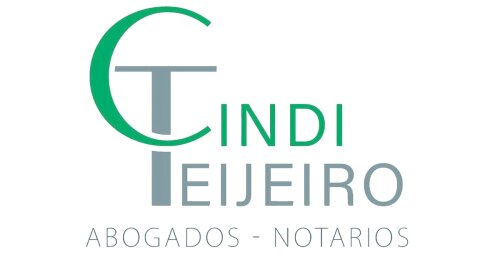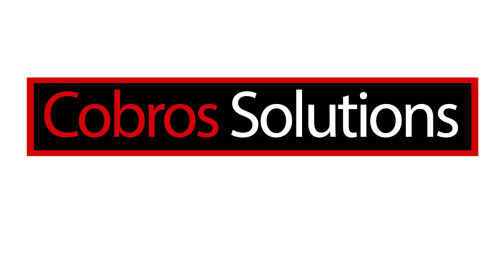Best Class Action Lawyers in Bonao
Share your needs with us, get contacted by law firms.
Free. Takes 2 min.
List of the best lawyers in Bonao, Dominican Republic
About Class Action Law in Bonao, Dominican Republic
Class action in the Dominican Republic refers to legal mechanisms that allow a group of people with similar or collective interests to seek relief in a single proceeding. While the system is not identical to the United States style class action, Dominican law recognizes collective and diffuse rights and provides several paths to protect them. In Bonao and the wider Monseñor Nouel province, these cases most often arise in consumer protection, environmental impacts, public services, and constitutional protection of collective rights.
Collective remedies can be pursued through specific statutes and constitutional processes. Common avenues include consumer protection actions, environmental claims, and a constitutional action called amparo that can be brought on behalf of a group when fundamental or collective rights are threatened or violated. Local courts in Bonao can hear many of these matters, and some issues may also proceed before specialized or higher courts depending on the subject matter and the relief sought.
Why You May Need a Lawyer
People in Bonao may need legal help for a class action or collective claim in situations such as:
- A defective product or unsafe food affecting many consumers in the community. - Abusive or deceptive billing practices by a company providing services such as telecom, banking, insurance, or retail sales. - Environmental harm such as contamination of water, air, or soil that affects multiple neighborhoods or communities. - Sudden changes in public service delivery that collectively harm users, including electricity reliability or pricing practices. - Illegal clauses in standard form contracts that all customers are required to sign. - Data security incidents that expose personal information for a group of customers. - Violations of collective labor interests coordinated through unions or worker associations. - Government actions or omissions that infringe collective or diffuse rights, such as access to a healthy environment.
A lawyer experienced in collective litigation can evaluate whether group treatment is appropriate, identify the best legal avenue, coordinate evidence from multiple people, request urgent protective measures, and negotiate or litigate on behalf of the affected class. Counsel can also help manage communications with authorities such as ProConsumidor or environmental regulators while preserving your right to compensation.
Local Laws Overview
- Constitution of the Dominican Republic: Recognizes collective and diffuse rights and allows protective actions to defend them. Constitutional relief can include orders directing authorities or companies to cease harmful practices and to remedy violations. - Law 137-11 on Constitutional Proceedings: Provides the amparo action, including the possibility of a collective amparo when a group has its rights threatened or violated. This is often used for urgent protection where rapid judicial intervention is needed. - Law 358-05 on Consumer Protection: Allows consumer associations and the national consumer authority to act in defense of collective and diffuse interests. It provides administrative enforcement, civil remedies for damages, restitution, and orders to stop unfair practices. Group-based consumer claims can be coordinated to obtain refunds, repairs, replacements, or changes to business conduct. - Law 64-00 on Environment and Natural Resources: Establishes strong public interest protections for the environment. It allows individuals, communities, and associations to seek preventive and corrective measures, restoration, and compensation for collective environmental damage. Precautionary measures are available to halt activities that pose serious risks. - Civil and Commercial Procedure: Dominican civil procedure does not mirror US class certification, but it permits representative or association-based actions and joinder of multiple claimants when appropriate. Courts can manage notice and distribution of awards to beneficiaries as part of a judgment or settlement. - Administrative and Regulatory Complaints: In addition to court actions, people may seek relief through regulators such as ProConsumidor for consumer matters, or environmental and sector regulators. Administrative outcomes can support or complement later court claims.
Jurisdiction and venue are important. Many collective claims with local impacts can be filed in the Juzgado de Primera Instancia in Bonao. Consumer administrative proceedings typically begin with ProConsumidor. Environmental matters can involve the Ministry of Environment and specialized prosecutorial units. Some actions may proceed in specialized or higher courts, especially constitutional or administrative cases.
Frequently Asked Questions
What is a class action in the Dominican Republic?
It is a group or representative action that protects collective or diffuse interests, often brought by affected individuals, associations, or authorities. Instead of a US style Rule 23 process, Dominican law uses specific statutes and constitutional procedures to allow group-wide relief.
Who can file a collective claim or represent the group?
Individual victims, a group of affected people, legally established associations that represent relevant interests, and in consumer cases the national consumer authority may initiate actions. Courts can recognize a representative plaintiff or association to act on behalf of the group.
What kinds of cases are suitable for collective treatment?
Typical areas include consumer protection issues, environmental harm, unfair contract terms used across a customer base, misleading advertising that affects many people, and government or corporate conduct that violates collective rights.
Do I have to live in Bonao to participate?
No. What matters is whether you were affected by the conduct tied to the jurisdiction or the defendant. Many collective cases are organized locally because the harm occurs in Bonao or surrounding areas.
Where are these cases filed?
Depending on the claim, filings can be made in the Civil and Commercial Court of First Instance in Bonao, through ProConsumidor for consumer complaints, before environmental authorities for environmental issues, or in constitutional courts for amparo actions. Your lawyer will select the appropriate forum.
How long do these cases take?
Timeframes vary based on complexity, the type of relief sought, and whether urgent measures are requested. Constitutional amparo matters are designed for speed. Consumer and environmental cases can take months or longer, especially if extensive evidence and expert reports are needed.
What remedies are available?
Courts can order refunds, damages, repairs, replacement of products, cessation of unlawful practices, corrective advertising, environmental remediation, and in constitutional cases, specific orders to protect rights. Precautionary measures can halt harmful activities while the case is pending.
How are group members notified and paid?
The court or the responsible authority may approve a plan for notice and distribution. This can include public announcements, claims processes, and court supervised administration of payments or benefits.
How do legal fees work?
Fee arrangements vary. Dominican law allows different fee structures, including hourly and quota-litis agreements. Courts may award costs, and some statutes allow administrative sanctions against violators. Always obtain a written fee agreement that explains costs and responsibilities for notices and experts.
What deadlines apply?
Limitation periods differ by type of claim. Consumer, environmental, tort, and constitutional matters each have their own time rules. Because deadlines can be short and are strictly applied, seek legal advice as soon as you suspect collective harm and preserve all documents.
Additional Resources
- National Consumer Protection Authority - ProConsumidor: Receives consumer complaints, conducts investigations, negotiates settlements, and can support collective remedies. - Ministry of Environment and Natural Resources and Environmental Prosecutor: Handle environmental complaints, inspections, and enforcement, including cases affecting communities in Monseñor Nouel. - Defensor del Pueblo - Ombudsman: Assists with protection of fundamental and collective rights and can intervene in systemic issues affecting groups. - Sector Regulators: Superintendence of Electricity, Telecommunications regulator, and financial regulators can address collective harms in their sectors and coordinate with courts or consumer authorities. - Colegio de Abogados de la República Dominicana - Bar Association: Can help you locate attorneys with experience in collective litigation and public interest cases. - Local Municipal and Provincial Offices in Bonao and Monseñor Nouel: Useful for filing local complaints, obtaining environmental or public service records, and coordinating community responses.
Next Steps
- Document the problem: Save contracts, receipts, bills, photos, videos, medical reports, and all communications. Keep a timeline of events and identify as many affected people as possible. - Consult a qualified lawyer in Bonao: Ask about experience with consumer, environmental, and constitutional collective actions. Discuss strategy, forum selection, urgent measures, and evidence needs. - Organize the group: Create a contact list, designate spokespersons, and consider forming or working with an association to strengthen standing and coordination. - Consider administrative action first when appropriate: File complaints with ProConsumidor or environmental authorities. Administrative findings can support a later court case and may deliver faster interim relief. - Evaluate remedies and risks: Clarify your objectives, potential compensation, required notices, and funding for experts and communications. Review a written fee agreement and privacy protections for class data. - Act promptly: Limitation periods can be tight. Early action preserves rights, evidence, and leverage for negotiation or court ordered relief.
This guide provides general information and is not a substitute for legal advice. For advice on your specific situation in Bonao, consult a licensed attorney familiar with Dominican collective litigation.
Lawzana helps you find the best lawyers and law firms in Bonao through a curated and pre-screened list of qualified legal professionals. Our platform offers rankings and detailed profiles of attorneys and law firms, allowing you to compare based on practice areas, including Class Action, experience, and client feedback.
Each profile includes a description of the firm's areas of practice, client reviews, team members and partners, year of establishment, spoken languages, office locations, contact information, social media presence, and any published articles or resources. Most firms on our platform speak English and are experienced in both local and international legal matters.
Get a quote from top-rated law firms in Bonao, Dominican Republic — quickly, securely, and without unnecessary hassle.
Disclaimer:
The information provided on this page is for general informational purposes only and does not constitute legal advice. While we strive to ensure the accuracy and relevance of the content, legal information may change over time, and interpretations of the law can vary. You should always consult with a qualified legal professional for advice specific to your situation.
We disclaim all liability for actions taken or not taken based on the content of this page. If you believe any information is incorrect or outdated, please contact us, and we will review and update it where appropriate.









